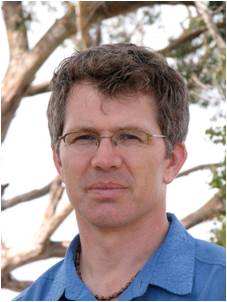
Christian Barrett, Ph.D.
Project Scientist
Dr. Barrett obtained his PhD in Computer Science from UC Santa Cruz in 2001. At UCSC, Dr. Barrett was an initial member of one of the world’s first established academic bioinformatics groups. During the course of his doctoral work, Dr. Barrett conceptualized and/or was a principal developer of new applications of hidden Markov models (HMMs) for protein bioinformatics, namely the use of HMMs for remote homology detection, protein secondary structure prediction, and protein tertiary structure prediction. Many of the HMM applications in use today have their roots in research that Dr. Barrett performed as a graduate student.
Following his graduate education, Dr. Barrett accepted a position as a Bioinformatics Research Scientist at deCode Genetics in Reykjavik, Iceland. At deCode, Dr. Barrett worked with multiple disease groups to advance their understanding of pathology beyond just genomic location information and toward molecular mechanisms. Dr. Barrett returned to California in 2003 to pursue a postdoctoral position in the laboratory of Bernhard Palsson in the Bioengineering Department at UC San Diego. There, he conceptualized and implemented novel approaches for discovering what reconstructed cellular systems can reveal about cell physiology and the deep connections between biochemical network structure and network function. In 2007, Dr. Barrett assumed a project scientist position in the Palsson lab, where we worked with colleagues to reconstruct the transcriptional regulatory systems at the genome scale in the model organism E. coli using combined experimental-computational approaches. He also worked extensively with next generation sequencing technology for the purpose of polymorphism discovery and de novo whole genome assembly. Dr. Barrett joined the Frazer Lab in 2010.
Overall, Dr. Barrett’s areas of expertise span from the genome-scale to the scale of individual biomolecules, and encompass a broad interdisciplinary knowledge base spanning the computational to the experimental. He has a strong working knowledge in the areas of DNA bioinformatics, protein bioinformatics, systems biology, statistical machine learning, algorithm development, and signal processing. His entire research history, spanning 15 years, has focused on many biological (and only biological) domains, including molecular biology, cell biology, metabolism, transcriptional regulation, high-throughput “omics” data, in silico whole-cell reconstructions, genome architecture, and de novo genome assembly and polymorphism discovery using next-generation sequencing technologies.
Dr. Barrett's current research is on the development of new approaches for both early detection and vaccine engineering in the context of ovarian cancer. Both of these efforts are based on tumor-specific mRNA and protein isoforms, the discovery of which are made possible by novel methods for transcriptome profiling by RNA-seq and by new bioinformatics algorithms that Dr. Barrett is developing.